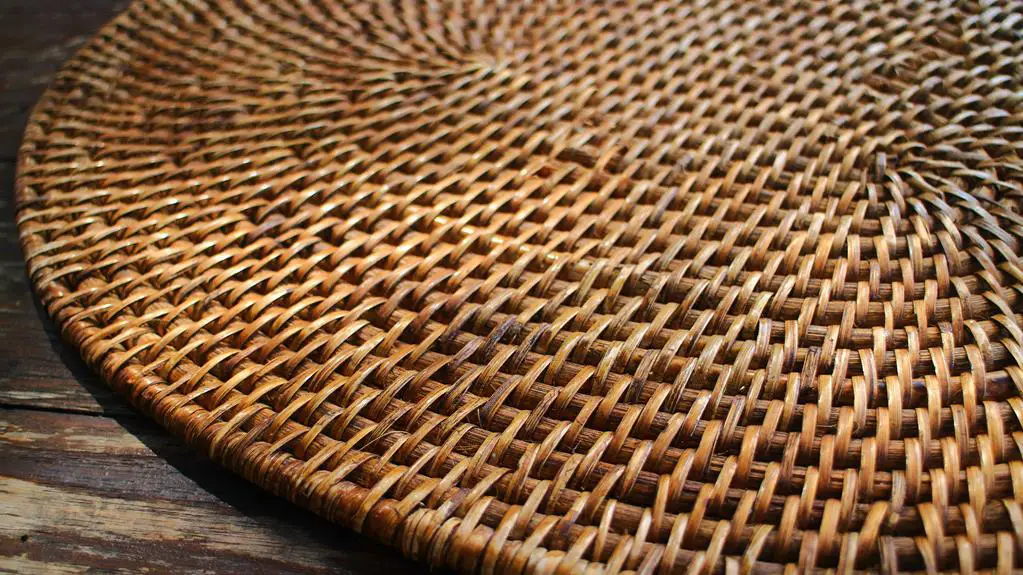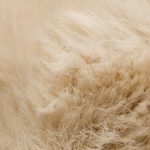When you consider fabrics for your active lifestyle, bamboo fabric might catch your attention for its reputed breathability and moisture-wicking abilities. You might wonder how it compares to other materials you typically use. The unique structure of bamboo fibers allows for impressive air circulation, which can keep you cool and comfortable. Plus, its moisture-wicking properties help draw sweat away from your skin. But do these features hold up under pressure? Understanding the science behind bamboo fabric can clarify its true potential for your needs.
Table of Contents
Key Takeaways
- Bamboo fabric is highly breathable, allowing air circulation that keeps the body comfortable across various temperatures.
- Its lightweight nature enhances freedom of movement, making it ideal for active lifestyles.
- The fabric's unique moisture-wicking properties draw sweat away from the skin, maintaining dryness during physical activities.
- Bamboo fibers absorb moisture quickly and promote evaporation, preventing clinging and aiding in temperature regulation.
Understanding Bamboo Fabric
Bamboo fabric is an eco-friendly textile made from the pulp of bamboo grass, offering a soft feel and unique properties that set it apart from conventional materials. When you choose bamboo fabric, you're opting for a sustainable option that's both biodegradable and made from a rapidly renewable resource. The process of transforming bamboo into fabric often involves less water and fewer chemicals compared to traditional textiles, making it a greener choice for your wardrobe.
One of the standout features of bamboo fabric is its natural antibacterial properties. It helps reduce odor, making it an excellent choice for activewear and undergarments. You'll also appreciate how bamboo fibers are naturally smooth, which means less irritation against your skin, especially if you have sensitivities.
Moreover, bamboo fabric is highly versatile. You can find it used in various products, from clothing to bed sheets and towels. This adaptability makes it a popular choice for eco-conscious consumers looking to minimize their environmental impact without sacrificing comfort.
Breathability of Bamboo
One of the most appealing aspects of bamboo fabric is its impressive breathability, which keeps you comfortable in a variety of temperatures. When you wear bamboo clothing, you'll notice how it allows air to circulate, preventing you from overheating during warm days. This natural ventilation helps regulate your body temperature, making it a great choice for both summer and winter wear.
Unlike some synthetic fabrics that can trap heat, bamboo fibers are structured to promote airflow. This means you won't feel stifled or sweaty, even when you're active. The lightweight nature of bamboo also contributes to its breathability, giving you the freedom to move without feeling weighed down.
You might find that bamboo fabric feels cooler against your skin compared to cotton, which is ideal for hot climates or workouts. The fabric's softness adds to your comfort level, allowing you to wear it for extended periods without irritation.
Moisture-Wicking Properties
Many people appreciate how bamboo fabric's moisture-wicking properties draw sweat away from the skin, keeping you dry and comfortable during physical activities. When you engage in exercise or spend time outdoors, staying dry is crucial for maintaining your comfort and performance. Bamboo fabric excels in this area because its unique structure allows it to absorb moisture quickly, pulling it away from your body.
As you wear bamboo clothing, you'll notice that it doesn't cling to your skin like some other materials do. Instead, it helps regulate your body temperature by ensuring sweat evaporates quickly, which can be a game-changer during workouts or hot days. This feature not only enhances comfort but also helps prevent chafing and irritation, allowing you to focus on your activities.
Additionally, bamboo's natural properties resist odors, further contributing to a pleasant wearing experience. So, whether you're hitting the gym, going for a hike, or just enjoying a warm day, bamboo fabric's moisture-wicking capabilities provide a reliable solution. You can feel confident knowing that you'll stay dry and fresh, no matter the intensity of your activities.
Comparing Bamboo to Other Fabrics
When you compare bamboo fabric to other materials, you'll quickly notice its superior breathability and comfort during various activities.
Unlike cotton, which can absorb moisture but often retains it, bamboo wicks away sweat efficiently, keeping you dry and comfortable. This means you won't have to deal with that sticky feeling during workouts or hot days.
When stacked against synthetic fabrics like polyester, bamboo stands out for its natural feel and eco-friendliness. While polyester might dry quickly, it can trap heat and moisture against your skin, leading to discomfort.
Bamboo, on the other hand, allows air to circulate, helping to regulate your body temperature.
Additionally, bamboo fabric's softness rivals that of high-quality cotton but with enhanced breathability. You'll appreciate how it feels against your skin, making it an excellent choice for sleepwear or everyday wear.
Benefits for Active Lifestyle
For an active lifestyle, bamboo fabric offers unmatched moisture-wicking properties that keep you cool and dry during even the most intense workouts. When you're pushing your limits, the last thing you want is to feel weighed down by sweat. Bamboo's natural fibers draw moisture away from your skin, allowing it to evaporate quickly, so you can stay comfortable and focused.
Additionally, bamboo fabric's breathability enhances airflow, preventing overheating. This is crucial when you're engaged in high-energy activities, as it helps regulate your body temperature. Plus, its soft texture reduces friction, minimizing irritation and chafing, which is especially beneficial during long runs or intense training sessions.
You'll also appreciate that bamboo is naturally antibacterial and hypoallergenic, making it a great option for those with sensitive skin. This means you can wear it for extended periods without worrying about odors or discomfort.
Incorporating bamboo fabric into your workout wardrobe means you're choosing a sustainable option that performs well. So whether you're hitting the gym, going for a hike, or practicing yoga, bamboo can enhance your active lifestyle with its unique benefits.
Frequently Asked Questions
Is Bamboo Fabric Environmentally Friendly Compared to Other Materials?
Bamboo fabric's often considered environmentally friendly due to its rapid growth and low pesticide use. Compared to cotton and synthetics, it generally has a smaller ecological footprint, making it a sustainable choice for eco-conscious consumers like you.
How Is Bamboo Fabric Produced and Processed?
Bamboo fabric's production involves harvesting bamboo stalks, pulping them to extract cellulose, and then spinning that cellulose into fibers. You'll find this process can vary, impacting the fabric's quality and environmental footprint significantly.
Can Bamboo Fabric Cause Allergic Reactions?
Bamboo fabric's generally hypoallergenic, but some people might experience allergic reactions due to chemical treatments during processing. It's best to check for sensitivities, especially if you have a history of allergies to certain materials.
What Is the Lifespan of Bamboo Fabric Products?
Bamboo fabric products typically last three to five years with proper care. You should wash them gently, avoid bleach, and let them air dry to maximize their lifespan and maintain their softness and durability.
How Should Bamboo Fabric Be Washed and Cared For?
To care for bamboo fabric, wash it in cold water on a gentle cycle. Avoid bleach and fabric softeners. Hang it to dry or tumble dry on low to maintain its softness and durability.
- Fake Kevlar Fabric: Identifying Counterfeits and Legal Issues - June 21, 2025
- Fabrication of Kevlar Parts: French Applications and Costs - June 21, 2025
- Manufacturing With Glass and Kevlar: Spanish Guide to Composite Uses - June 21, 2025







